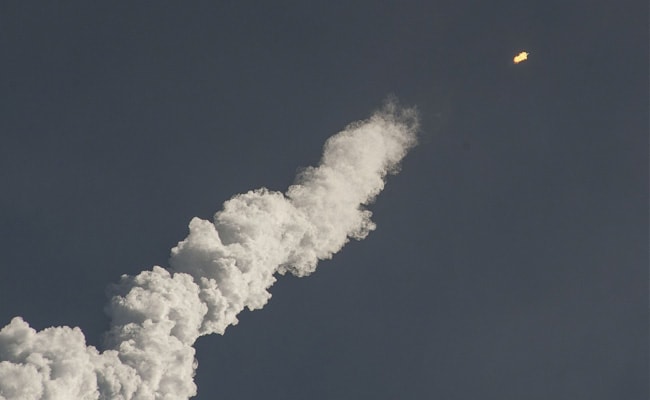
Beirut:
Israeli strikes pummelled south Beirut on Monday, Lebanese official media said, and health authorities reported 31 people killed across the war-hit country, most of them in the south.
Israel’s military said in a statement Monday afternoon it had hit “approximately 25 terror targets” belonging to Hezbollah across Lebanon, including in Nabatiyeh, Baalbek, the Bekaa Valley and southern Beirut and the city’s outskirts.
AFPTV images showed palls of smoke over the capital’s southern suburbs after strikes that began in the morning after successive Israeli military warnings to evacuate.
Lebanon’s state-run National News Agency (NNA) reported a fourth wave of Israeli raids in south Beirut on Monday evening, saying “enemy warplanes launched strikes on (the) Haret Hreik and Shiyah” districts.
The attacks came after a weekend of heavy raids in the area, despite ongoing international ceasefire efforts.
Early Saturday, a deadly strike on central Beirut’s densely populated Basta neighbourhood killed at least 29 people, the health ministry said.
Israel’s army said Monday it had struck a Hezbollah command centre there, though an official with the Iran-backed group denied reports that a senior member had been targeted.
The NNA reported Israeli strikes on Tyre and Nabatiyeh after Israel issued evacuation warnings for parts of the main southern cities.
Lebanon’s health ministry said Israeli strikes killed at least 31 people on Monday.
A statement listed “the casualty toll of Israeli enemy strikes on a number of Lebanese cities and towns” in the east, south and near Beirut, with most people killed in the south and four killed in the east.
‘Dangerous conditions’
The NNA also reported “a drone strike that targeted a residential complex” in a Druze-majority town on the outskirts of Beirut, without prior evacuation calls.
Lebanon’s Druze community follows an offshoot of Shiite Islam, and its heartland around Mount Lebanon has largely been spared in the current hostilities.
The education ministry suspended classes on Monday in schools, technical institutes and private higher education institutions in Beirut and a number of surrounding areas, citing “the current dangerous conditions”.
Hezbollah on Sunday claimed a higher than average 50 attacks on Israeli troops, military positions and towns across the border and in southern Lebanon. The Israeli army reported 250 projectiles launched into Israel.
On September 23, Israel intensified its air campaign in Lebanon, mainly targeting Hezbollah bastions in the south and east and in south Beirut, later sending ground troops across the border.
Israeli ground forces have entered several south Lebanon villages and towns near the border, including Khiam, where the NNA Monday reported fierce clashes with Hezbollah fighters.
The United Nations peacekeeping mission in Lebanon’s south (UNIFIL), meanwhile, said Monday it was “seriously concerned” by recent deadly strikes on Lebanese soldiers, which Beirut has blamed on Israel.
While Lebanon’s army is not engaged in the Israel-Hezbollah war, it has suffered multiple fatalities among its ranks, including one on Sunday.
The war has killed at least 3,799 people in Lebanon since October 2023, according to the health ministry, most of them since September.
On the Israeli side, authorities say at least 82 soldiers and 47 civilians have been killed.
The United States, European Union and United Nations have all been actively pushing in recent days for parties to accept a truce in the war.
An Israeli official told AFP on condition of anonymity that Israel’s security cabinet “will decide on Tuesday evening on the ceasefire deal”.
(Except for the headline, this story has not been edited by NDTV staff and is published from a syndicated feed.)









